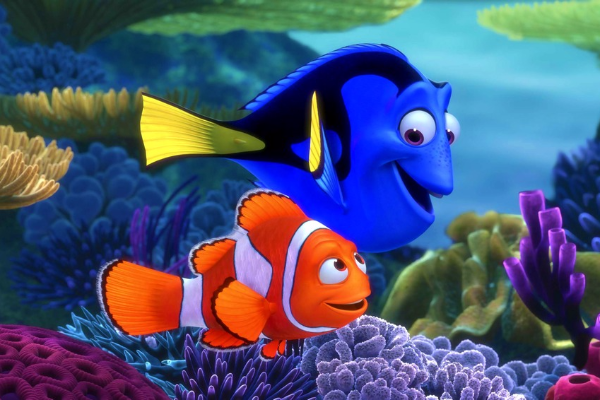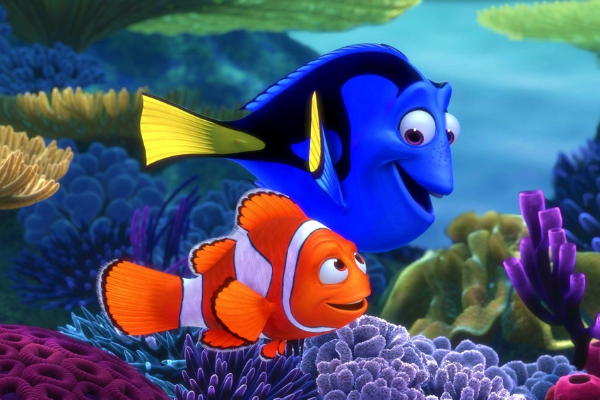
If you are parent of young children, you probably went to see Finding Dory this summer. At first glance, it appeared to be just another fun movie about fish on an adventure. However, later as I thought more about the movie I realized it actually illustrated some interesting parenting issues. As I discuss this, some spoilers might slip out, so take note if you haven’t seen the movie.
In this latest adventure, Dory is still friends with Nemo and his dad Marlin. Early in the movie she realizes that she really wants to find her parents who she long-ago got separated from. You may remember from the first movie that Dory suffers from short-term memory loss. So most of the movie involves Dory trying to find her long-lost parents with the help of Nemo and Marlin. During the process, there are numerous flash-back scenes to the story of how Dory came to be friends with Nemo and Marlin.
Here’s where it gets interesting from a parenting perspective–Dory and Nemo, as you may remember, both have physical challenges. Nemo has one fin that is smaller than the other, while Dory has short-term memory loss. What we see throughout the movie is how each of their parents handle their challenges in very different ways.
We learn from the flashbacks that Dory’s parents realized her challenges with memory at a young age. They talked to her about her memory loss and explained with much repetition (as necessary with memory loss) and were very patient with her.
Nemo’s dad Marlin handled his son’s physical challenge in a very different way. In the movie he tends to be very overprotective and wanting to limit Nemo’s activities and not let him go far from home.
What struck me about these two different fish families is that we can easily see ourselves in each of these scenarios. Regardless of whether our children have any apparent challenges or disabilities, we all at times have probably taken on the role of Dory’s parents or Nemo’s dad.
What is even more revealing is how each of the “children” (Nemo and Dory) respond to the different parenting strategies. With the guidance of her very patient parents, Dory is able to learn to explore on her own and develops ways to find her way back home. Her parents give her tools and strategies like songs and sea shell trails to help her do things independently. They know they might not always physically be with her, but their voice becomes the mantra in her head to guide her home. Instead of limiting her, they give her the skills she needs to be brave and explore.
Nemo, on the other hand, has a very different response from Marlin’s overprotective nature. He rebels. He feels that his dad is limiting him and his exploration. He knows he has a physical challenge but he doesn’t want it to limit his abilities. Instead of listening to his dad, he simply rebels to the point of taking dangerous risks (e.g., touching a boat and getting captured). In other words, his dad’s over-protection stifles him.
What can we learn about our own parenting from these two scenarios? Although it is just a movie, I think it portrays somewhat realistic situations. Being the child development geek that I am, I always return to the research. Is there research that can inform us about these two different parenting strategies?
Dory’s parents took what I would call an authoritative parenting approach. Authoritative parents provide age-appropriate limits and guidelines but are not overly intrusive. They offer a balance of both responsiveness and control. Research dating back to the 1960’s consistently shows that this approach (which is easier said than done) is most likely to give children the best chance at being psychologically well-adjusted. One of the most compelling aspects of this approach is that parents change as the child develops. They gradually give the child more autonomy and allow appropriate risk-taking as the child meets growing challenges and decisions. This is what gives children, like Dory, confidence. A real, lasting confidence that cannot be easily shaken.
Nemo’s dad, in contrast, is what I would call a helicopter parent. Of course, given his history of trauma, it’s not surprising that he took this approach. We know from research looking at recent generations of young adults, that this helicopter approach does not really serve our kids well. If they don’t rebel, like Nemo, then they often reach college-age lacking the resourcefulness and grit to face tough decisions and challenges. As child psychologists describe it, the parents have become a “crutch” for the child.
There is a neurological basis for this too. When young children face challenges on their own, their brain actually becomes more complex and more neural connections form. One researcher describes it this way,
“As children explore their environment by themselves—making decisions, taking chances, coping with any attendant anxiety or frustration—their neurological equipment becomes increasingly sophisticated. Dendrites sprout. Synapses form. If, on the other hand, children are protected from such trial-and-error learning, their nervous systems “literally shrink.”
In reality, we’ve all had times when we were more like Marlin with our kids and other times when we took the approach of Dory’s parents. It is good, however, to be aware of these different approaches and the impact they may have on our children’s development.
Just keep swimming…











